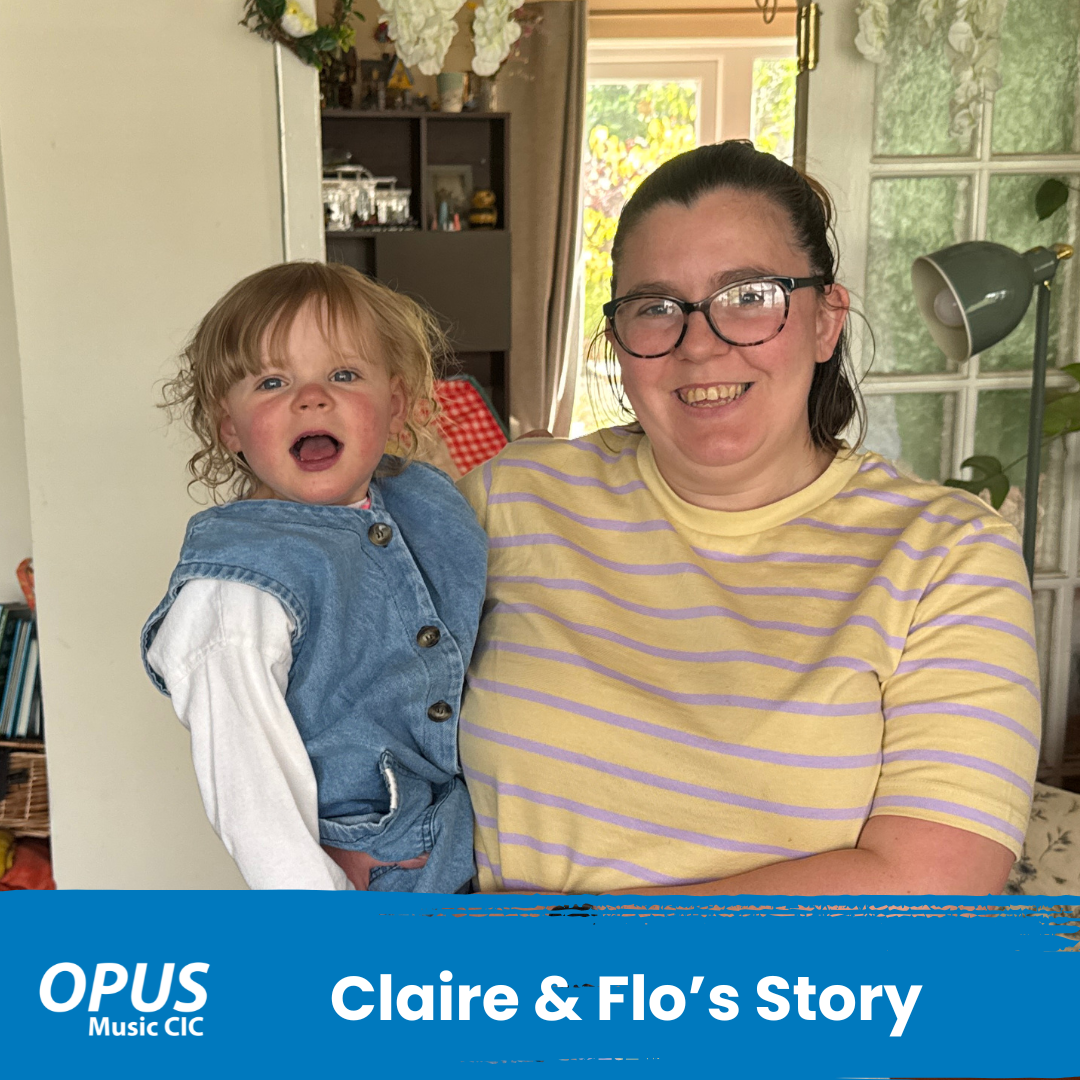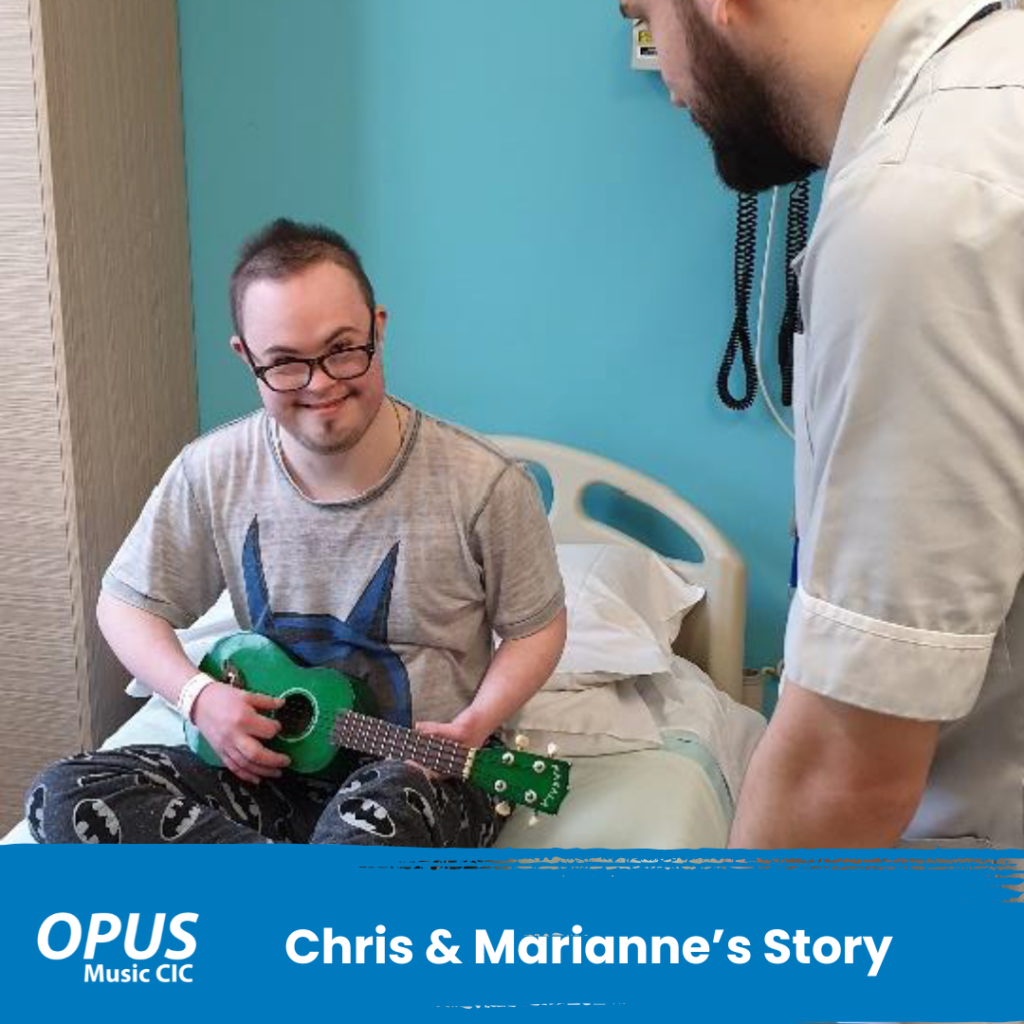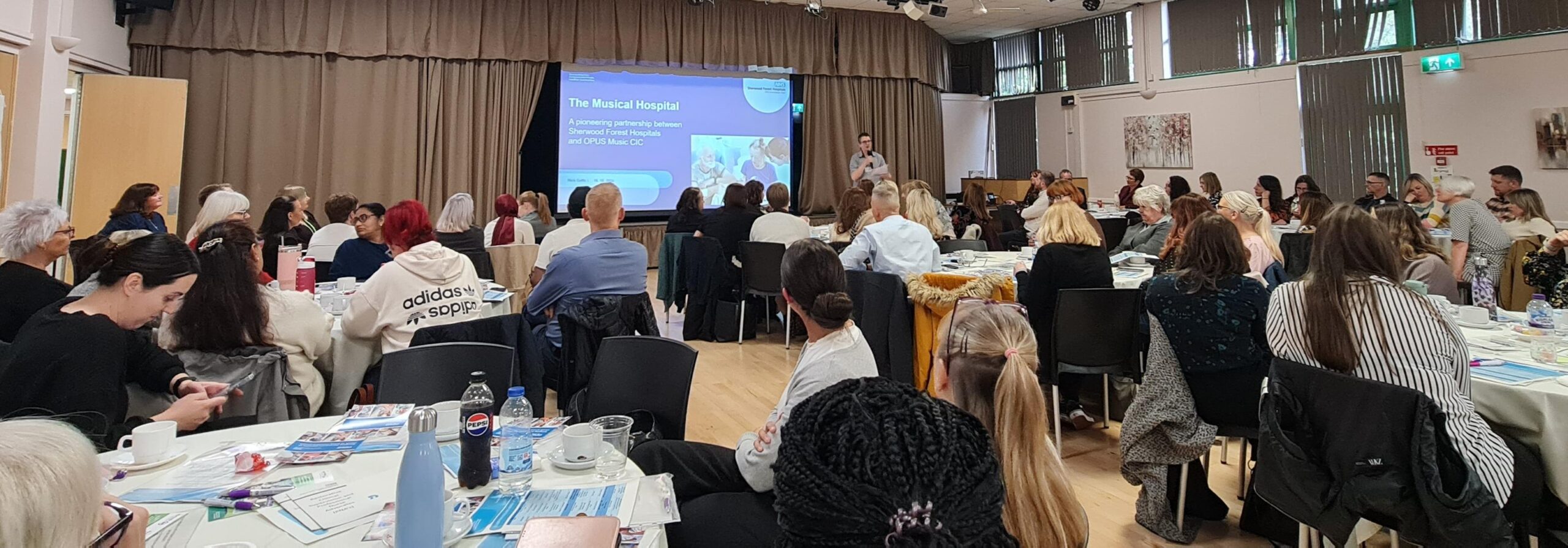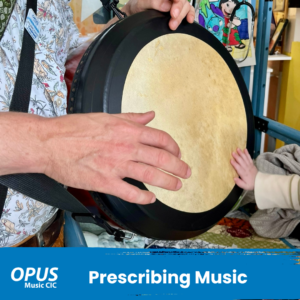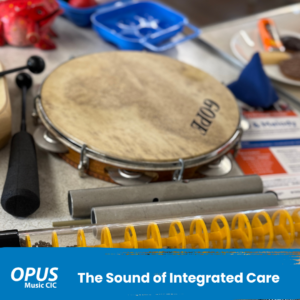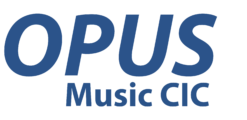Music as a Social Prescription
Prescribing Connection
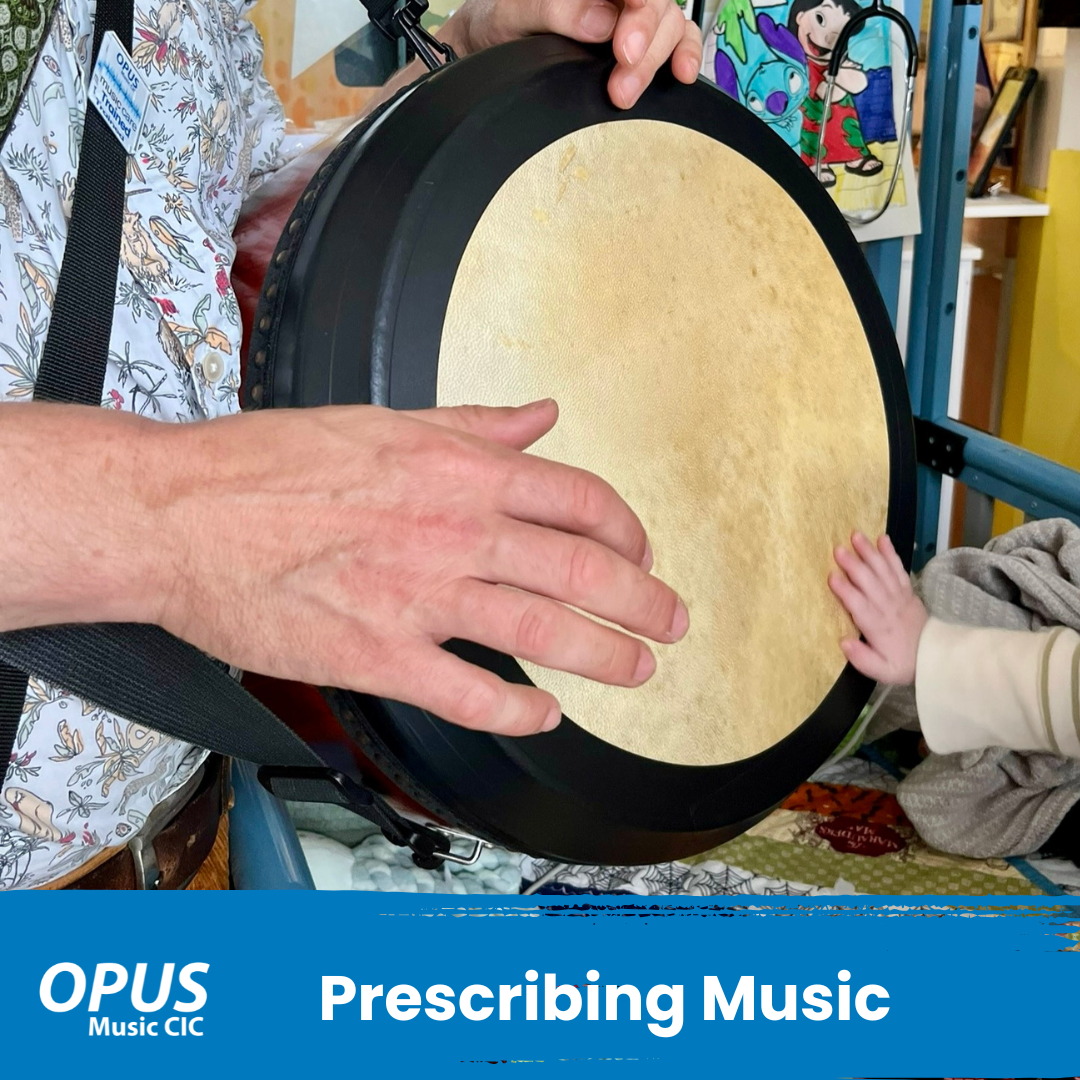
Music as a Social Prescription
Across the UK, social prescribing is transforming the way we think about health and wellbeing.
Rather than relying solely on clinical treatments, Social Prescribing Link Workers and healthcare professionals are increasingly connecting people to non-medical support within their communities, from gardening groups and walking clubs, to visual arts, volunteering, and peer support networks.
But among these powerful interventions, one of the most accessible, inclusive, and transformative tools we have is music.
Music is medicine for connection
At OPUS Music CIC, we work in close partnership with health and social care providers to champion music as a form of social prescription: a meaningful, person-centred way to support health and wellbeing.
Our work across hospitals, care settings, and communities informs us that music can reduce loneliness, anxiety, and stress while nurturing confidence, joy, and social connection.
Music reaches people in ways that traditional interventions sometimes cannot. It creates spaces where people feel heard, valued, and part of something, a shared creation, offering autonomy, creativity, and connection.
How music supports health and wellbeing
When offered as a social prescription, music can have profound and lasting impact.
It can:
Reconnect people living with long-term conditions to their communities and sense of identity
Offer purpose and achievement through learning, participation, and creativity
Reduce isolation by creating shared musical moments
Build emotional resilience and support mental wellbeing
Encourage self-expression where words may be difficult
Whether someone is living with dementia, managing chronic illness, experiencing mental health challenges, or navigating social isolation, music provides an entry point for connection.
The role of Social Prescribing Link Workers
Social Prescribing Link Workers play a vital role in bridging healthcare and community support.
By signposting individuals to local music opportunities, such as choirs, drumming circles, songwriting groups, or participatory music sessions, they open doors to experiences that nurture both individual and collective wellbeing.
In healthcare settings, referrals to music-making programmes can support recovery, reduce distress, and humanise clinical environments.
Meeting people where they are
One of music’s greatest strengths is its accessibility.
Music-making does not require prior training, technical ability, or even verbal communication. Music meets people exactly where they are:
Emotionally
Physically
Socially
All that is needed is a willingness to listen, to play, or simply to share space with sound.
This universality makes music uniquely placed within social prescribing models, adaptable across ages, cultures, and care contexts.
A call for deeper collaboration
As social prescribing continues to grow, we believe there is an urgent opportunity to strengthen collaboration between:
Health and care systems
Social Prescribing teams
Community music organisations
Healthcare musicians and facilitators
By embedding music more intentionally within prescribing pathways, we can ensure that more people, regardless of age, background, or ability, can access its wellbeing benefits.
Because connection is health
When people make music together, something powerful happens.
Barriers soften. Conversations open. Confidence grows. Communities form.
Music does more than entertain – it connects. And connection is fundamental to our health.
Will you join us?
We’re calling on healthcare professionals, Social Prescribing Link Workers, commissioners, and community partners to help ensure that music and music-making are considered part of every prescription for wellbeing.
Because when we prescribe music, we prescribe connection.
Read More

Music as a Social Prescription
Music reaches people in ways that traditional interventions sometimes cannot. It creates spaces where people feel heard, valued, and part of something, a shared creation, offering autonomy, creativity, and connection.
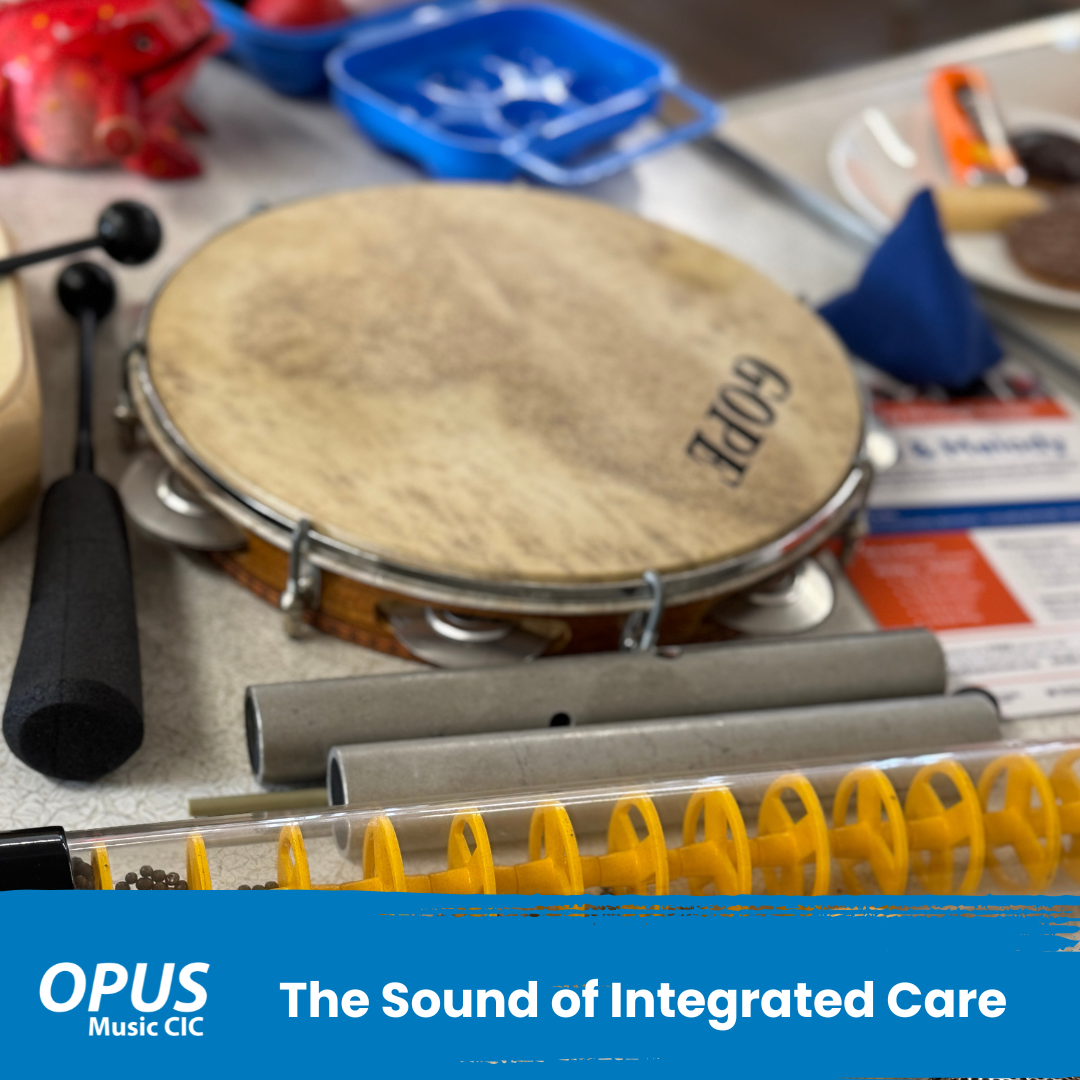
The Sound of Integrated Care
The Sound of Integrated Care: Why Music Belongs in Every Health Setting
Music is an essential part of healthcare — not an optional extra
When we think about healthcare, we often think first of medicine, diagnostics and treatment. These are vital.
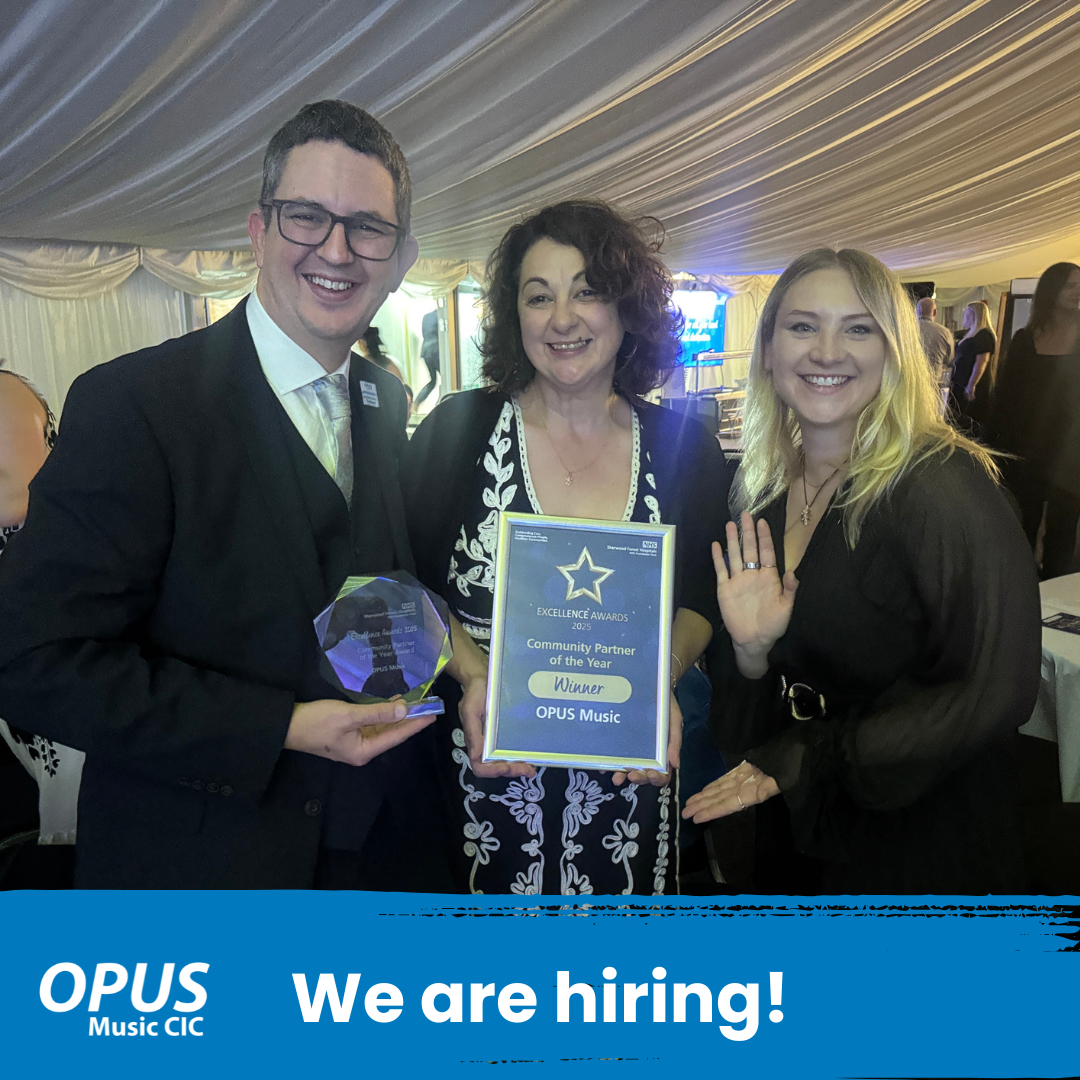
We are Hiring a Finance Manager at OPUS
OPUS music are hiring a new Finance Manager to work with the team on a freelance basis for 1 day a week.
